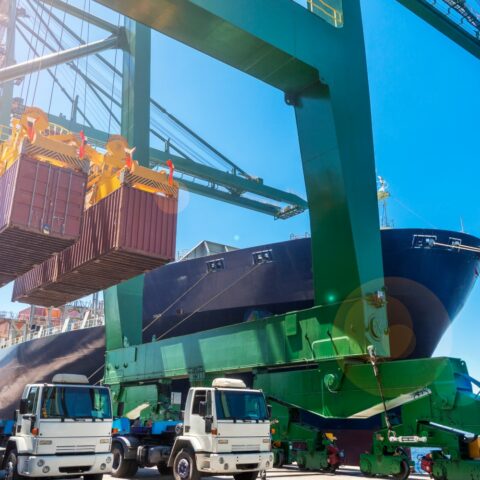The Challenge
El Salvador’s National Trade Facilitation Strategy (NTFS), developed in collaboration with USAID and promoted by the National Trade Facilitation Committee (NTFC), aims to establish the country as the leader in logistics infrastructure and modern international trade procedures in the Latin American region by 2027.
Spearheaded by the Secretariat of Trade and Investment and the Ministry of Economy, the NTFS involves 17 government entities and the private sector. With this key policy instrument, the government wants to create an innovative, simple and modern business ecosystem – improving trade competitiveness, increasing foreign direct investment, bolstering employment and increasing prosperity for its population.
However, to be able to deliver meaningfully on these ambitions, the Ministry of Economy requires tools to periodically measure the time and cost of trade processes and to assess El Salvador’s global trade competitiveness.
Recognising the benefits of external assistance in achieving this goal, the Ministry of Economy has sought the support of the Alliance in adopting its unique Total Transport and Logistics Costs (TTLC) methodology, a measurement approach to assess the impact of trade facilitation reforms on trade performance.
What We Are Doing
Informed by private sector data, in El Salvador, the Alliance will implement two TTLC studies concentrating on two key export sectors – agriculture and textiles – providing technical assistance to the Ministry of Economy, while simultaneously building its capacity to implement TTLC studies independently at project-end. In doing so, it will aim to create potential for future reform through public private partnership by fostering a culture of knowledge sharing and trust between the two sectors.
Both TTLC studies will provide information on the country’s trading systems, including the time and cost involved in conducting import, export procedures, and transit operations. By diagnosing supply chain blockages, they can also potentially inform priorities for planning, policies and future reforms.
After completion, the Alliance will maintain an advisory role to ensure the Ministry of Economy deploys TTLC in line with Alliance quality standards.
| TTLC: A Unique Approach to Measuring Trade Performance Examining supply chains differently: TTLC provides a comprehensive analysis of the supply chain in terms of time and cost. Its main contribution lies in its emphasis on quantifying time variability and indirect costs, filling gaps not addressed by existing methodologies. Identifying Bottlenecks: By estimating the time and costs involved in each step of the import and export supply chains, TTLC serves as a baseline tool for identifying bottlenecks. Ultimately, by using the same data, TTLC can help to assess the potential return-on-investment of trade facilitation reforms. Tracking progress over time: TTLC can be used both before and after the implementation of trade facilitation initiatives. It allows for ex ante analysis to estimate the potential impact of reforms and ex post analysis to assess the actual impact on total costs of transport and logistics. Engaging the private sector: As one of the key beneficiaries of trade facilitation reforms, the private sector holds valuable information on the performance of supply chains. Collecting data from business is an important feature of the TTLC methodology, allowing the user to gain insights on how the private sector experiences the international trade environment. |
The Impacts
This project contributes to the Alliance’s goal of delivering meaningful, sustainable reforms that lead to time and cost savings in cross-border trade. By building capacity within the Ministry of Economy to monitor progress, the project will not only help to improve current trade facilitation reforms, but may also encourage the development of future interventions.
Additionally, through collaboration and knowledge sharing it aims to increase trust between the public and private sectors, contributing to the sustainability of the reforms.
By project-end, the Alliance’s knowledge and capacity building will have positioned the Ministry of Economy to use the TTLC methodology in assessing trade and logistics performance. Implementing this robust measurement approach will help ensure accurate NTFS monitoring. This will help position El Salvador as a global model of good practice and provide confidence to foreign investors.


 El Salvador
El Salvador

